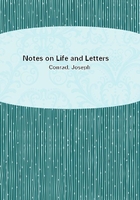
第28章
The book {6} which in the course of the last few days I have opened and shut several times is not imaginative. But, on the other hand, it is not a dumb book, as some are. It has even a sort of sober and serious eloquence, reminding us that not poetry alone is at fault in this matter. Mr. Bourne begins his ASCENDING EFFORT with a remark by Sir Francis Galton upon Eugenics that "if the principles he was advocating were to become effective they must be introduced into the national conscience, like a new religion.""Introduced" suggests compulsory vaccination. Mr. Bourne, who is not a theologian, wishes to league together not science and religion, but science and the arts. "The intoxicating power of art," he thinks, is the very thing needed to give the desired effect to the doctrines of science. In uninspired phrase he points to the arts playing once upon a time a part in "popularising the Christian tenets." With painstaking fervour as great as the fervour of prophets, but not so persuasive, he foresees the arts some day popularising science. Until that day dawns, science will continue to be lame and poetry blind. He himself cannot smooth or even point out the way, though he thinks that "a really prudent people would be greedy of beauty," and their public authorities "as careful of the sense of comfort as of sanitation."As the writer of those remarkable rustic notebooks, THE BETTESWORTHBOOK and MEMOIRS OF A SURREY LABOURER, the author has a claim upon our attention. But his seriousness, his patience, his almost touching sincerity, can only command the respect of his readers and nothing more. He is obsessed by science, haunted and shadowed by it, until he has been bewildered into awe. He knows, indeed, that art owes its triumphs and its subtle influence to the fact that it issues straight from our organic vitality, and is a movement of life-cells with their matchless unintellectual knowledge. But the fact that poetry does not seem obviously in love with science has never made him doubt whether it may not be an argument against his haste to see the marriage ceremony performed amid public rejoicings.
Many a man has heard or read and believes that the earth goes round the sun; one small blob of mud among several others, spinning ridiculously with a waggling motion like a top about to fall. This is the Copernican system, and the man believes in the system without often knowing as much about it as its name. But while watching a sunset he sheds his belief; he sees the sun as a small and useful object, the servant of his needs and the witness of his ascending effort, sinking slowly behind a range of mountains, and then he holds the system of Ptolemy. He holds it without knowing it. In the same way a poet hears, reads, and believes a thousand undeniable truths which have not yet got into his blood, nor will do after reading Mr. Bourne's book; he writes, therefore, as if neither truths nor book existed. Life and the arts follow dark courses, and will not turn aside to the brilliant arc-lights of science. Some day, without a doubt,--and it may be a consolation to Mr. Bourne to know it--fully informed critics will point out that Mr. Davies's poem on a dark woman combing her hair must have been written after the invasion of appendicitis, and that Mr.
Yeats's "Had I the heaven's embroidered cloths" came before radium was quite unnecessarily dragged out of its respectable obscurity in pitchblende to upset the venerable (and comparatively naive)chemistry of our young days.
There are times when the tyranny of science and the cant of science are alarming, but there are other times when they are entertaining--and this is one of them. "Many a man prides himself" says Mr.
Bourne, "on his piety or his views of art, whose whole range of ideas, could they be investigated, would be found ordinary, if not base, because they have been adopted in compliance with some external persuasion or to serve some timid purpose instead of proceeding authoritatively from the living selection of his hereditary taste." This extract is a fair sample of the book's thought and of its style. But Mr. Bourne seems to forget that "persuasion" is a vain thing. The appreciation of great art comes from within.
It is but the merest justice to say that the transparent honesty of Mr. Bourne's purpose is undeniable. But the whole book is simply an earnest expression of a pious wish; and, like the generality of pious wishes, this one seems of little dynamic value--besides being impracticable.
Yes, indeed. Art has served Religion; artists have found the most exalted inspiration in Christianity; but the light of Transfiguration which has illuminated the profoundest mysteries of our sinful souls is not the light of the generating stations, which exposes the depths of our infatuation where our mere cleverness is permitted for a while to grope for the unessential among invincible shadows.